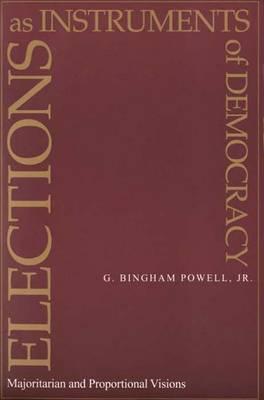
In this book, a leading scholar of comparative politics explores elections as instruments of democracy. Focusing on elections in twenty democracies over the past quarter century, G. Bingham Powell, Jr., examines the differences between two great visions of democracy―the majoritarian vision, in which citizens use the election process to choose decisively between two competing teams of policymakers, providing the winner with the concentrated power to make public policy; and the proportional influence vision, in which citizens use elections to choose political agents to represent their views in postelection bargaining, thereby dispersing power. Powell asks crucial questions for modern Which vision best serves as an instrument of democracy? What are the reasons and conditions under which each vision succeeds or fails? Careful analyses of more than 150 democratic elections show that each vision succeeds fairly well on its own terms in responsively linking election outcomes to policymaker selection, although advantages and limitations must be traded off. However, Powell concludes, the proportional influence vision and its designs enjoy a clear advantage in creating policy congruence between citizens and their policymakers―a finding that should give pause to those who are attracted to the idea of the decisive election as a direct tool for citizen control.